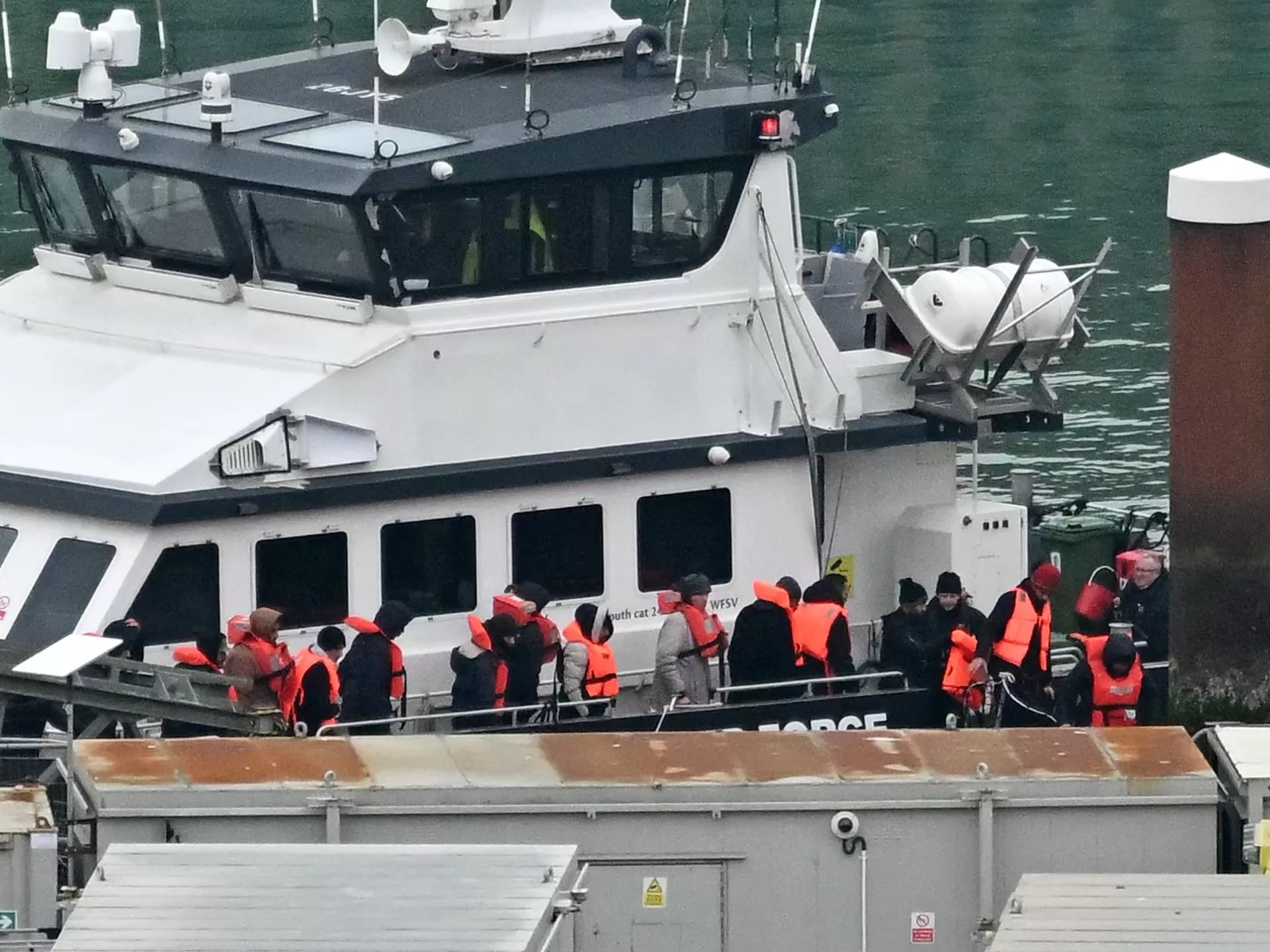The controversial law is expected to come into force within days with the first deportation flights in weeks.
Sunak hopes the legislation will boost the dismal fortunes of his Conservative Party in an election widely expected to take place later this year.
The House of Lords, an unelected chamber, had long refused to back the divisive plan without additional safeguards, but relented after Sunak said the government would force parliament to sit as late into Monday night as necessary to get the bill passed.
“No ifs, no buts. These flights are going to Rwanda,” Sunak told a news conference earlier in the day.
The Rwanda scheme, criticised by United Nations human rights experts and groups supporting asylum seekers, has been beset by legal challenges ever since it was first proposed as a way to curb the number of asylum seekers crossing the English Channel in small boats.
In June 2022, the first deportees were taken off a flight at the last minute after an injunction from the European Court of Human Rights. The following year, the UK’s Supreme Court ruled that sending asylum seekers on a one-way ticket to Kigali was illegal and would put them at risk.
The National Audit Office, a public spending watchdog, has estimated it will cost the UK some 540 million pounds ($665m) to deport the first 300 asylum seekers.
The House of Lords criticised the latest bill as inadequate and demanded amendments, including a requirement that Rwanda could not be treated as safe until an independent monitoring body found it to be true.
They also wanted an exemption for agents, allies and employees of the UK overseas, including Afghans who fought alongside the British Armed Forces, from being removed.
In the end, the Lords gave way and let the bill pass without any formal changes. The legislation is expected to receive Royal Assent from King Charles later this week and will then become law.
#UK: Airlines should not facilitate unlawful removals of asylum-seekers to Rwanda 🇷🇼, UN experts say. Such actions might make these companies complicit in violating internationally protected #HumanRights and court orders.https://t.co/EZfERVb1kz pic.twitter.com/1JVhs49Ywt
— UN Special Procedures (@UN_SPExperts) April 22, 2024
More than 120,000 people – many fleeing wars and poverty in Africa, the Middle East and Asia – have reached the UK since 2018 by crossing the English Channel in small boats, usually inflatable dinghies, on journeys organised by people-smuggling gangs.
Last year, 29,437 asylum seekers made the crossing with one in five of them from Afghanistan, according to the Refugee Council.
Critics say the plan to deport people to Rwanda rather than handle asylum seekers at home is inhumane, citing concerns about the East African country’s own human rights record and the risk that asylum seekers may be sent back to countries where they would be in danger.
The so-called “Safety of Rwanda” bill states some existing UK human rights statutes will not apply to the scheme and Rwanda must be treated by UK judges as a safe destination, despite the Supreme Court declaring the scheme unlawful. It also limits individuals’ options for an appeal to only exceptional cases.
Other European countries, including Austria and Germany, are also looking at agreements to process asylum seekers in third countries.
Sunak’s plans could still be held up by legal challenges, and UN rights experts have suggested that airlines and aviation regulators could fall foul of internationally protected human rights laws if they participate in the deportations.
About 150 people have already been identified for the first two flights.
Polls suggest the Conservatives, who claimed that the UK’s departure from the European Union would give the country “control” over its borders and the ability to reduce immigration, will be badly beaten in the coming election by the opposition Labour Party.
Labour has said it will scrap the scheme if it wins power and work on a deal with the EU to return some arrivals to mainland Europe.
